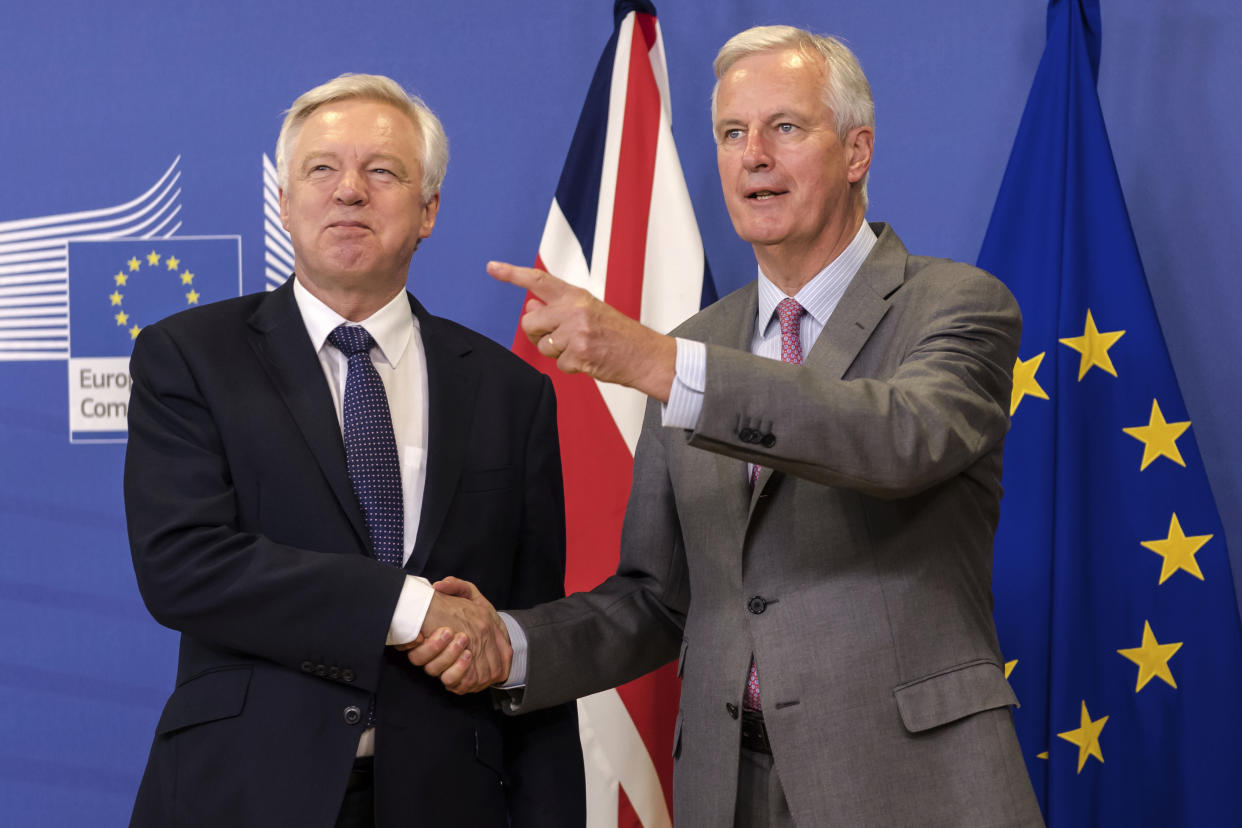UK plan for interim customs union after Brexit 'a fantasy'

The plan for Britain to remain in a customs union with the European Union after Brexit is “a fantasy”, according to a top EU official.
Guy Verhofstadt, the European parliament’s Brexit co-ordinator, responded dismissively to proposals unveiled by the government this morning for an interim customs union to avoid a “cliff-edge” exit.
To be in & out of the Customs Union & "invisible borders" is a fantasy. First need to secure citizens rights & a financial settlement
— Guy Verhofstadt (@GuyVerhofstadt) August 15, 2017
In a statement, the European Commission said they would take note of the UK’s request for an interim period but only address them “once we have made sufficient progress on the terms of the orderly withdrawal”.
“As Michel Barnier has said on several occasions”, said the commission, referencing the EU’s chief negotiator, “‘frictionless trade’ is not possible outside the Single Market and Customs Union”.
The unequivocal EU response came as the plans were also met with criticism at home.
Open Britain, a group pushing for a soft Brexit, similarly said the proposals show the government is “living in a fantasy land”.
Statement from EU shows that Govt are living in a fantasy land: you cannot have frictionless trade outside of Single Market & Customs Union https://t.co/7YhJekQNkp
— Open Britain (@Open_Britain) August 15, 2017
Brexit Secretary David Davis’ conceded that, should the EU be willing to discuss the plan, Britain might have to pay for the privilege of remaining in a customs union. Asked on ITV, Davis said he didn’t think Britain would have to pay but that “what happens in that interim period you have to leave to me to negotiate”.
The customs union allows goods to travel across the EU free of tariffs and checks.
Davis, who embarked on a tour of the broadcasters on Tuesday morning in order to sell the proposals, told BBC Radio 4’s Today programme that the temporary agreement would be in place for a “shortish period” that would end before the next election.
“It’s very very hard to say at this point to say exactly how long”, he said. “I would say the most likely is something like two years, maybe a bit shorter.”
The plan, seemingly designed as a compromise to resolve disagreements within the Cabinet, is contained in the Government’s first “future partnership paper”, published on Tuesday by the Department for Exiting the European Union.
It confirms the UK will ultimately leave the system, as Prime Minister Theresa May has repeatedly stated, but proposes a temporary customs union as a “possible approach” to ensuring a “smooth and orderly” transfer.
The proposal could provide assurances to nervy business leaders that Britain may avoid border chaos after leaving the bloc.
The plan also outlines an alternative scenario, which would see a border managed by the UK as part of a “highly streamlined customs arrangement”.
MOST POPULAR STORIES ON YAHOO UK:
British banker accidentally flies to Las Vegas instead of Stansted after boarding the wrong flight
Paedophile is shot dead and hung from a crane in brutal public execution
London’s Holborn Underground station evacuated as smoke fills platform after ‘loud bang’
Charlottesville: Twitter users name and shame white supremacists at far-right rally
Kim Jong Un backs down as US warns: ‘This could escalate into war very quickly’
The plans were unveiled just a day after Chancellor Philip Hammond and Secretary of State for International Trade Liam Fox insisted that the UK will leave the customs union after Brexit in a joint article for the Sunday Telegraph.
The mixed messages and reports of Britain’s lack of preparedness in the first round of exit negotiations have put the government under pressure to lay out a clear position before a new round of talks later this month.
Labour’s shadow Brexit secretary, Sir Keir Starmer, branded the proposals “incoherent and inadequate” and said they were “designed to gloss over deep and continuing divisions within the Cabinet”.
“Businesses, trade unions and the country need certainty about our future trading and customs arrangements”, he said.
“They also need a pragmatic and considered approach that delivers the best deal for Britain. Instead, the Cabinet remain split on key issues and cannot decide between two very different but equally unachievable options”.
Labour’s stance on the issue is itself in some doubt, with Starmer and shadow chancellor John McDonnell stressing that all options should remain on the table in contrast to leader Jeremy Corbyn, who stated unequivocally that he would take Britain out of the single market and customs union.

 Yahoo News
Yahoo News 

